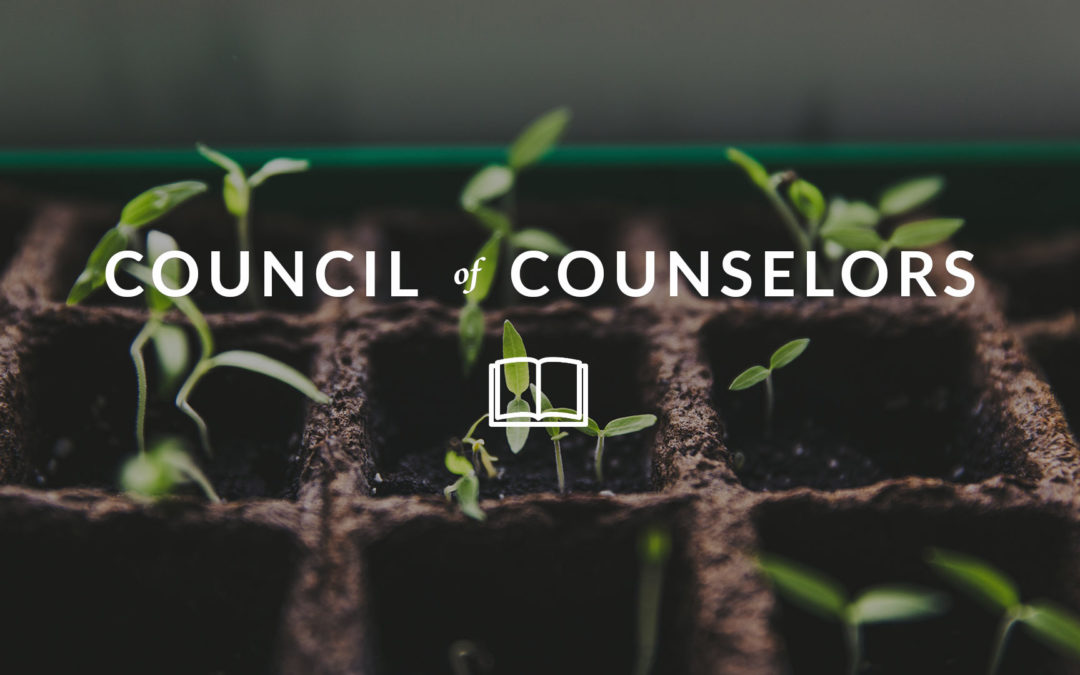This is a weekly post that highlights resources from other counselors that I have found helpful. The counselors may be from the biblical counseling, Christian psychology, integration, or secular counseling traditions. By linking to a post, I am not giving it my full endorsement, I am merely indicating that I believe it made a unique contribution or raised an important subject for consideration.
Anxiety and Depression, My Strange Friends by Scott Sauls
Not long ago, I was given an opportunity to share with a group of pastors about my personal experience with anxiety and depression. In hopes that my experience might be an encouragement to people who visit my blog, I thought I would share a transcript of my talk here as well.
- If you benefited from this post, you might also value this article: A Sample Letter to Help Cultivate Community While Struggling with Depression-Anxiety.
A Comprehensive Approach to Complex Counseling by Dave Dunham
Theories are useful, but if they don’t take into consideration the complexity of people and problems they won’t amount to much more than reductionist attempts at alleviation of trouble. An effective model of counseling must include an understanding of the diverse aspects of people and problems.
- If you enjoyed thinking through complex counseling cases, then you might also enjoy this 5-layered triage model.
What Pastors Need to Know About Mental Health, Ministry, and Liability by Samuel Ogles
As churches become increasingly aware of the widespread and serious nature of mental illness, church leaders may wonder how they should engage mental health ministry in the church—and what legal risks they may face in doing so.
- If you thinking through issues of mental health and counseling, then you might benefit from this article: What is Counseling About? Problems in Living, Meaning of Life, or Mental Health?.
The Anxiety-Busting Properties of Ritual by Nick Hobson
We have argued that rituals’ anxiety-busting features reside in their basic physical structure. The defining features of rituals, repetitive and rigid movements, buffer against uncertainty by evoking a sense of personal control and orderliness. The very act of engaging in a scripted sequence of ritualistic movements tricks the brain into thinking that it’s experiencing the pleasant state of predictability and stability.
- If you valued this post, then you might also enjoy learning about 10 Types of Thinking that Undergird Depression-Anxiety.
Every Single Cognitive Bias in One Infographic by Jeff Desjardins
The human brain is capable of incredible things, but it’s also extremely flawed at times. Science has shown that we tend to make all sorts of mental mistakes, called “cognitive biases”, that can affect both our thinking and actions. These biases can lead to us extrapolating information from the wrong sources, seeking to confirm existing beliefs, or failing to remember events the way they actually happened!
- If you’re intrigued by this article, then you might also like the resource in the “What I’m Reading” section below.
What I’m Reading
 Your Deceptive Mind: A Scientific Guide to Critical Thinking Skills by Steven Novella.No skill is more important in today’s world than being able to think about, understand, and act on information in an effective and responsible way. What’s more, at no point in human history have we had access to so much information, with such relative ease, as we do in the 21st century. But because misinformation out there has increased as well, critical thinking is more important than ever.
Your Deceptive Mind: A Scientific Guide to Critical Thinking Skills by Steven Novella.No skill is more important in today’s world than being able to think about, understand, and act on information in an effective and responsible way. What’s more, at no point in human history have we had access to so much information, with such relative ease, as we do in the 21st century. But because misinformation out there has increased as well, critical thinking is more important than ever.
These 24 rewarding lectures equip you with the knowledge and techniques you need to become a savvier, sharper critical thinker in your professional and personal life. By immersing yourself in the science of cognitive biases and critical thinking, and by learning how to think about thinking (a practice known as metacognition), you’ll gain concrete lessons for doing so more critically, more intelligently, and more successfully.
The key to successful critical thinking lies in understanding the neuroscience behind how our thinking works – and goes wrong; avoiding common pitfalls and errors in thinking, such as logical fallacies and biases; and knowing how to distinguish good science from pseudoscience. Professor Novella tackles these issues and more, exploring how the (often unfamiliar) ways in which our brains are hardwired can distract and prevent us from getting to the truth of a particular matter.
Tweets of the Week
Our slowness to take responsibility and to apologize reveals a greater brokenness than the offense.
— Daryl Crouch (@darylcrouch) December 19, 2017
We can be too agenda oriented with our kids. Listening & laughing together is just as important. Often, the agenda can wait.
— Jim Burns (@drjimburns) December 19, 2017
When we tell people in the church “we believe the Bible, and they don’t,” we’re leaving them w/out hermeneutical principles to respond to alternate views of Scripture.
(Once, when a friend asked a question about a different view in a seminary class, she was given this answer.)
— Kaitlyn Schiess (@KaitlynSchiess) December 23, 2017
True repentance means you don't judge the way others react to your sin.
— hershaelyork (@hershaelyork) December 29, 2017
Meaningful Meme

On the Lighter Side
Because, “A joyful heart is good medicine, but a crushed spirit dries up the bones,” Proverbs 17:22.

